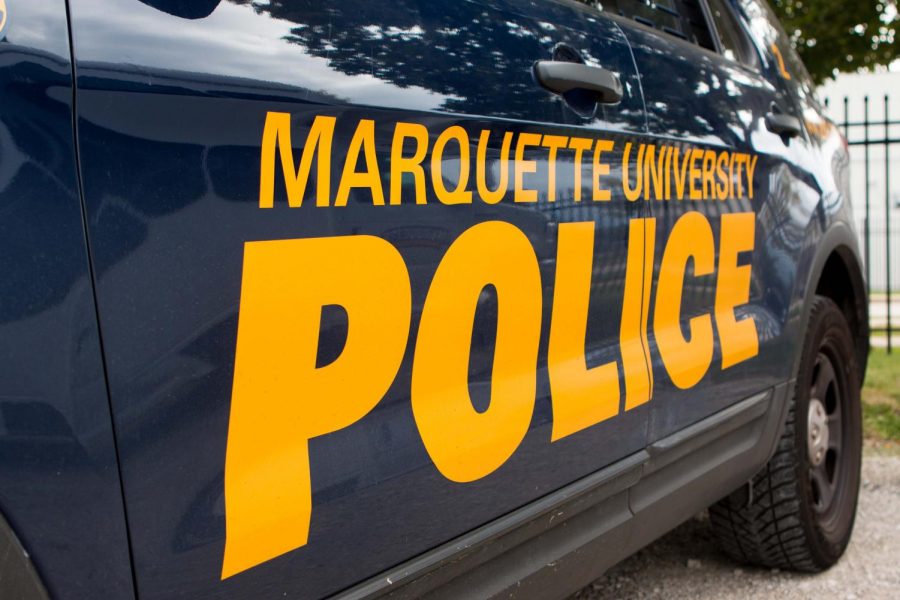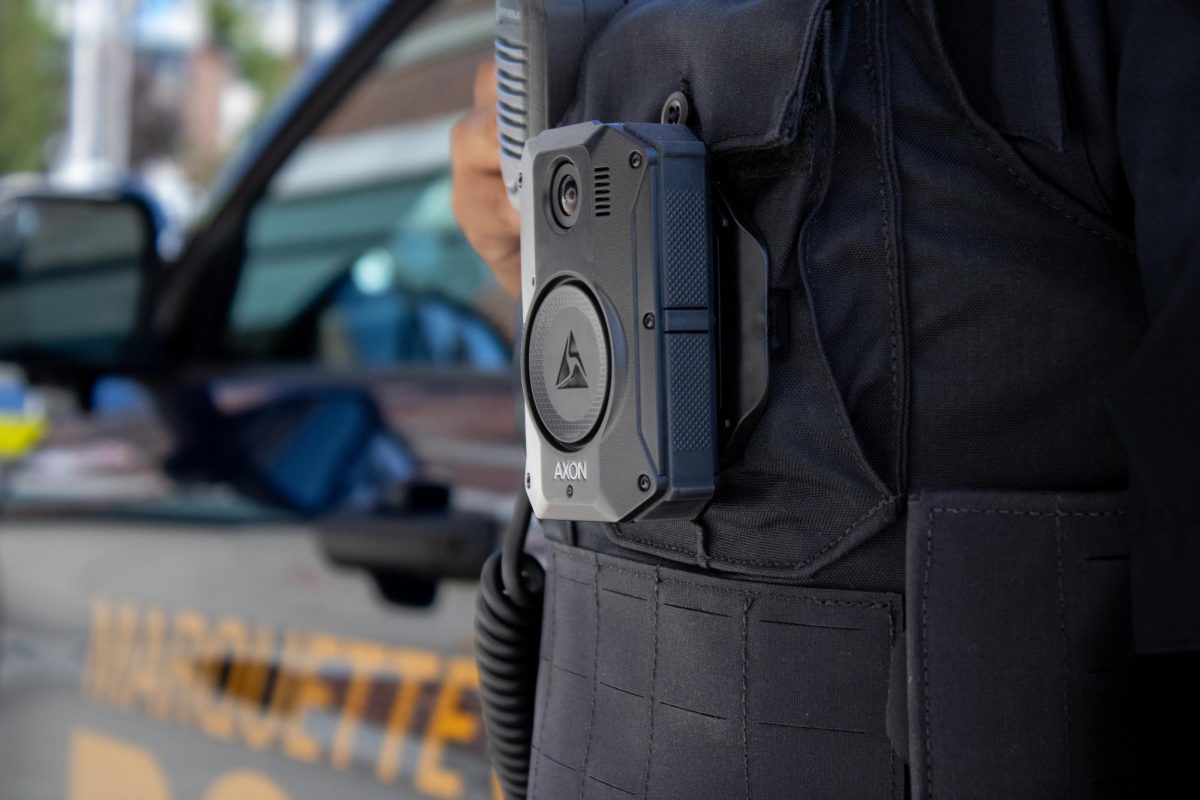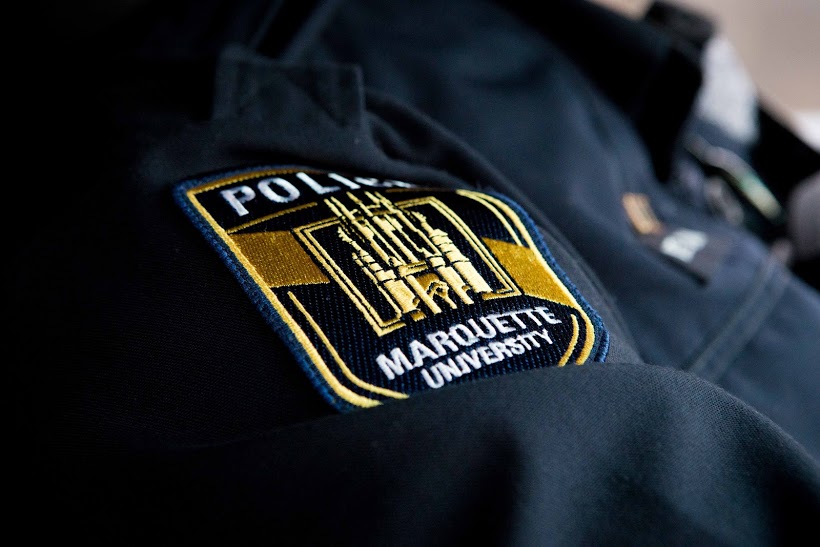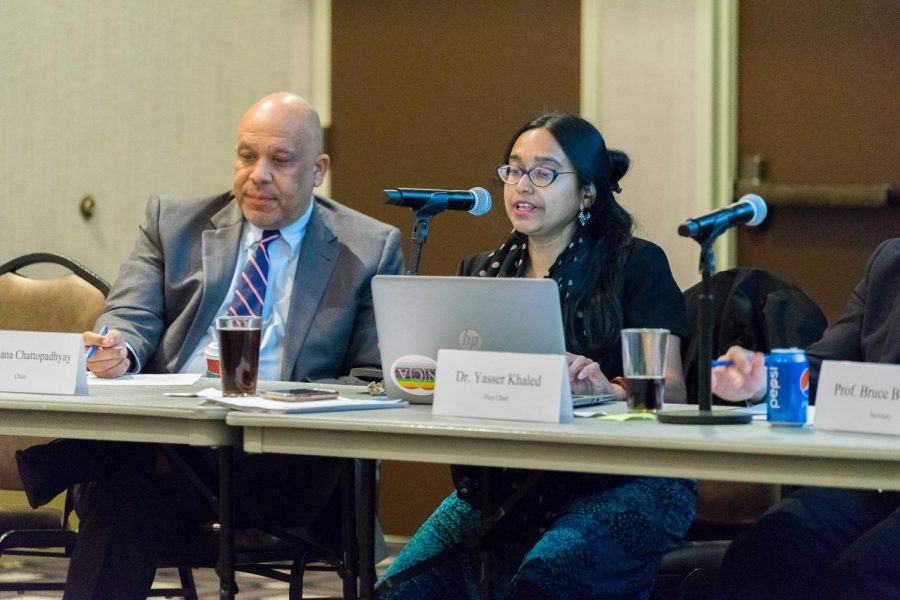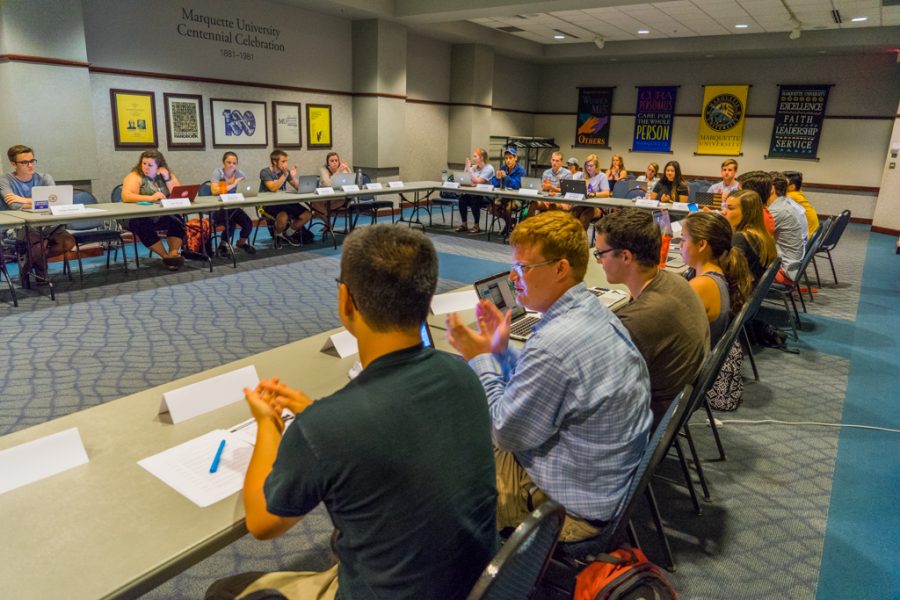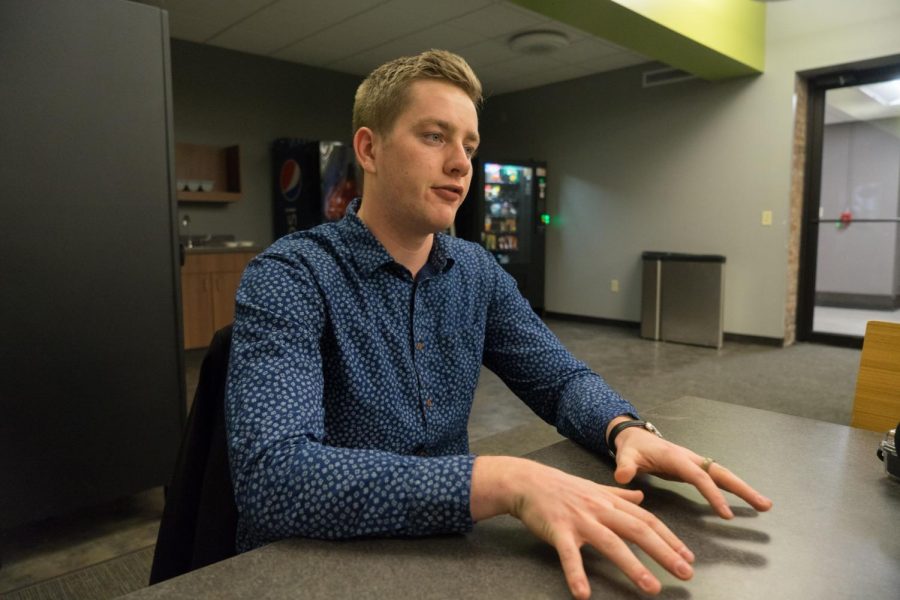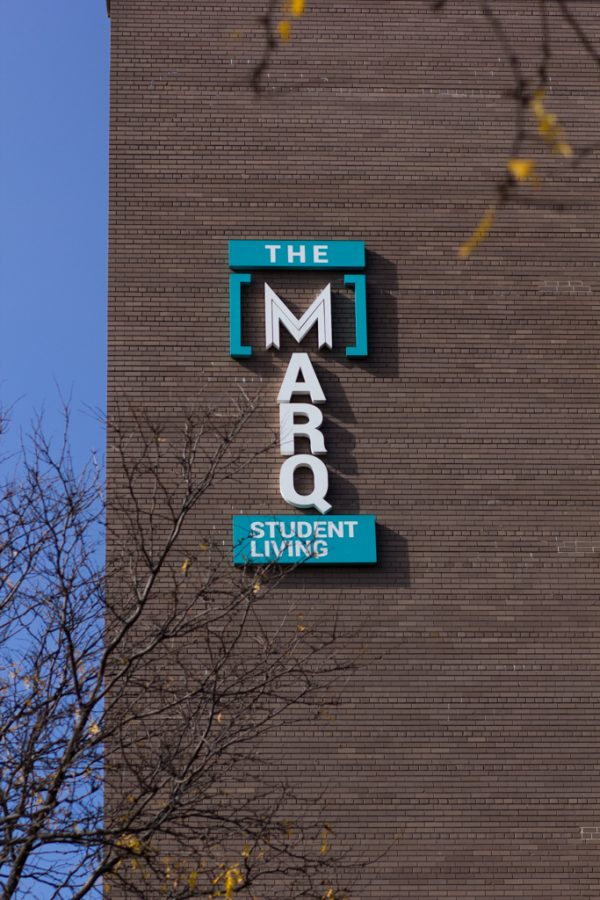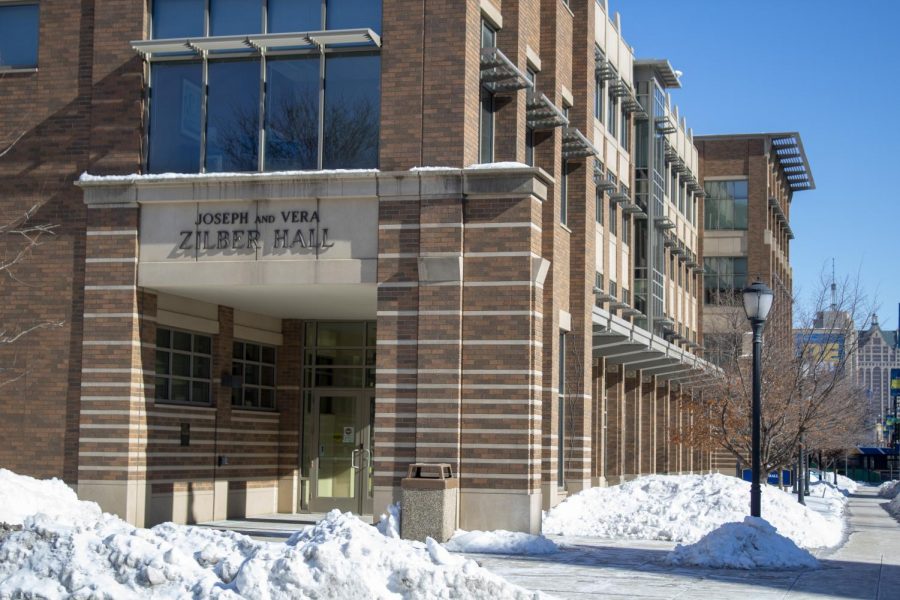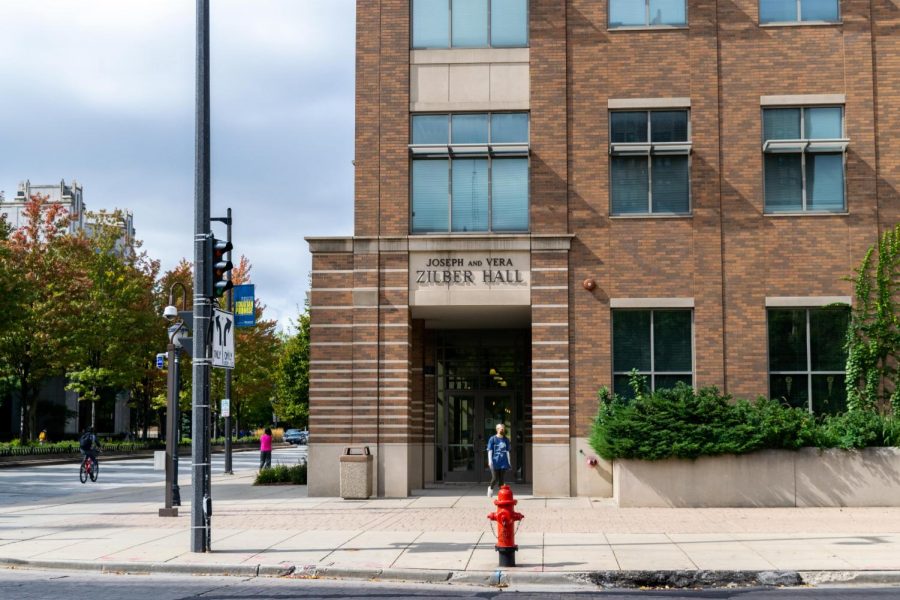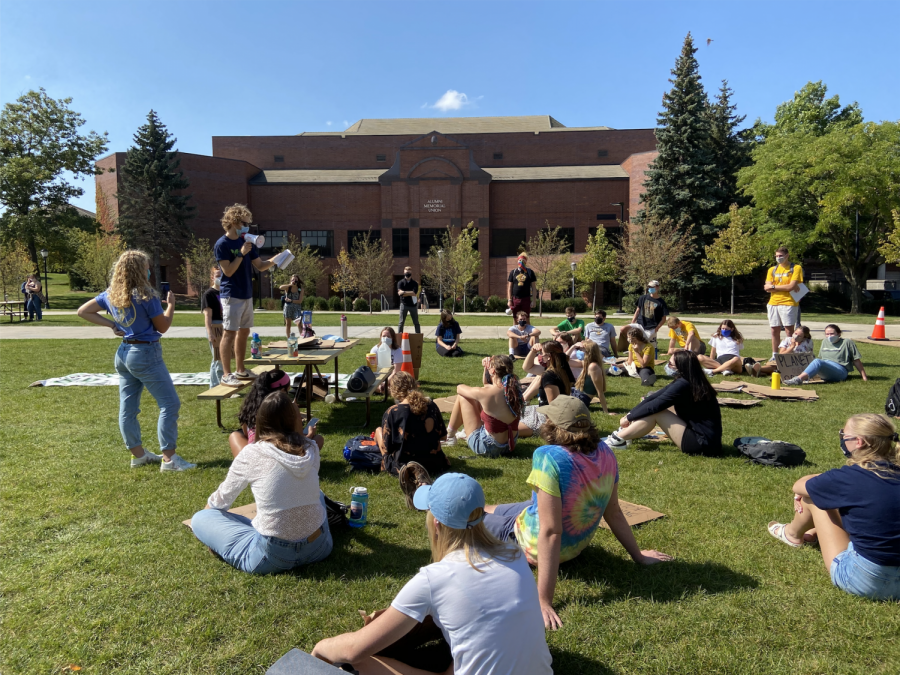“Cura personalis” is central to Marquette University Police Department Chief Edith Hudson’s leadership.
Hudson, the first female MUPD chief, has now been in the position for just over a year.
“Cura personalis” is Latin for “care for the entire person.” Hudson makes the phrase a priority, particularly for MUPD officers, Assistant Chief Jeffrey Kranz said.
“The nature of our job is to provide service to others and to get out in the community and worry about how other people are doing,” Kranz said. “One of (Hudson’s) primary focuses that I will say that didn’t exist before she got here is really looking at the officers’ well-being and making sure there’s a good work-home life balance, and making sure they’re taking care of themselves physically and emotionally and managing work stress.”
Hudson had Kranz and another officer attend a trauma-informed care training course to be certified as instructors so they could bring what they learned back to the department and incorporate it in officer training, Kranz said. He said while people typically think of victims needing help after exposure to traumatic events, the effects of trauma on police officers is not always discussed. The trauma-informed care training teaches officers self-care tips.
Hudson said she also prioritizes the well-being of her officers by listening to opinions and concerns. Answering small requests like painting the walls of the department, learning names and genuinely getting to know members of the department are part of Hudson’s leadership style.
“If our officers aren’t healthy — if they’re not happy — then they can’t do a good job and they can’t serve our community well,” Hudson said. “Just as Marquette … cares for students and the development of the students, I believe that I and our executive team here care for our officers as people and the development of those officers.”
Michael O’Hear, a professor at Marquette Law School and chair of Marquette University Police Department Advisory Board, said Hudson has emphasized her care for department members and expressed interest in dealing with stress-related problems that are common among police officers, a profession with high burnout rates, during the advisory board’s quarterly meetings.
The advisory board, appointed by University President Michael Lovell, is made up of five members, with O’Hear as chair. Members represent different parts of the Marquette community: students, faculty, staff and community, O’Hear said. The members, with the exception of the Marquette University Student Government president, serve three-year terms, which rotate.
O’Hear said Hudson has also expressed commitment to the safety and overall well-being of Marquette students, from exploring ways to improve safety of crossing busy streets to providing students with information of dorm room security, as well as vocalizing support for EagleEye, the safety app the university launched in 2018.
Hudson said one of her goals is to develop strong relationships with students and members of the Marquette community so they feel comfortable coming to police before engaging in potentially dangerous activities.
Hudson previously worked at the Milwaukee Police Department for 25 years before retiring in November 2015. Kranz said that while Hudson had to deal with transitioning from a department with many resources and almost 2,000 sworn members to a four-year-old department with 40 sworn members, she has brought a fresh perspective to MUPD’s policing.
One particular aspect Kranz said Hudson brought to the department that was influenced by her years with MPD was a focus on analysis of statistics of crime data.
Hudson said one special aspect of MUPD that differs from her experience with MPD is the unique ability for “small town policing in an urban environment.” She said MUPD’s smaller patrol area allows the department to give more time and care to assist members of the community who seek help for a variety of reasons, from homelessness to mental illness.
“We’re able to spend quite a bit more time just really focusing on our community members, helping them in ways that really don’t involve introducing them to the criminal justice system,” Hudson said. “It’s not about arresting people, it really is about finding the root cause of whatever problems they’re going through and finding permanent solutions for that, not just the Band-Aid approach that arresting often provides. Sometimes it’s the answer, but sometimes it’s not.”
O’Hear said that while the university occasionally has incidents that come with the urban environment, Hudson and MUPD have shown their ability to effectively address those issues. Beyond that, they have been a positive presence on campus for all members of the community.
“(Hudson is) also trying to engage with the community, and she wants the Marquette Police Department to be a positive force in the community, not just for the Marquette community, but for the Milwaukee community that surrounds Marquette,” O’Hear said. “I think that’s admirable that she wants her department to be a real force for good in this broader community.”
This story was written by Kelli Arseneau. She can be reached at [email protected].

